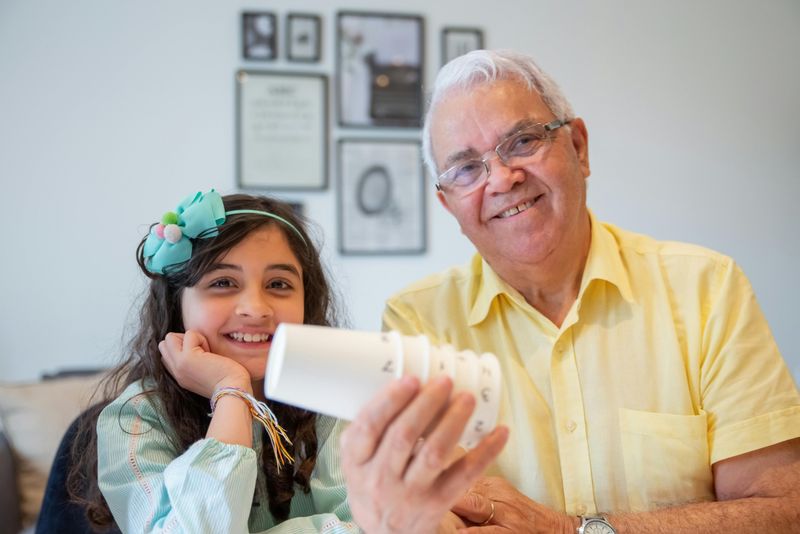Language evolves with each generation, creating gaps in how we communicate. Today’s casual phrases, especially those popularized by millennials and Gen Z, often leave Baby Boomers scratching their heads in confusion or shaking them in disapproval. While younger generations embrace these expressions as part of their everyday vocabulary, many Boomers view them as signs of linguistic decline. Let’s explore the casual phrases that drive a wedge between generations.
1. “No Cap” Instead of “Not Lying”

Boomers grew up in an era when “cap” meant something you wore on your head or placed on a bottle. Now suddenly it means “lie” in youth slang? The confusion is real when a teenager says “no cap” and their grandparent looks around for headwear.
The phrase originated in hip-hop culture, where “capping” meant exaggerating or lying. Removing the “cap” meant speaking honestly. For older generations who value straightforward communication, this cryptic shorthand feels needlessly complicated.
Many Boomers see this phrase as emblematic of deteriorating language standards. Meanwhile, younger people continue using it effortlessly in texts, social media, and daily conversations without a second thought.
2. “I’m Literally Dying” When Clearly Alive

Nothing makes a Boomer’s eye twitch faster than hearing someone claim they’re “literally dying” of laughter while standing perfectly healthy before them. For a generation that values precision in language, this hyperbolic use of “literally” feels like an assault on vocabulary.
The word’s meaning has shifted dramatically. Originally meaning “in a literal sense,” it’s now commonly used as an intensifier for emotional emphasis. Younger generations deploy it freely to add dramatic flair to ordinary situations.
Most Boomers were taught that words have specific definitions that shouldn’t be casually distorted. Yet this phrase has become so embedded in modern speech that dictionary definitions have actually expanded to include this figurative usage.
3. “I Can’t Even” Without Finishing the Sentence

Incomplete thoughts drive Boomers crazy. When someone says “I can’t even” and stops mid-sentence, many older folks want to scream, “You can’t even what?!” This truncated expression leaves them hanging, waiting for a conclusion that never arrives.
For younger generations, the incompleteness is precisely the point. The phrase conveys being so overwhelmed by emotion that words fail them – a concept that feels foreign to Boomers who were raised to articulate their thoughts completely.
The expression gained popularity through social media, where brevity reigns supreme. While Gen Z and millennials understand the full emotional weight behind these three words, Boomers see them as a lazy shortcut that bypasses proper communication.
4. “Adulting” to Describe Basic Responsibilities

When younger folks proudly announce they’re “adulting” after paying bills or cooking dinner, Boomers often respond with silent judgment. Growing up in post-war America, Boomers typically entered adulthood without fanfare, taking on responsibilities as expected parts of life.
The term “adulting” emerged as millennials began celebrating small victories in navigating adult responsibilities. For many raised during tougher economic times, the idea of needing a special term for normal life tasks seems ridiculous.
Boomers wonder: When did basic adult functions become worthy of special recognition? Meanwhile, younger generations continue using the term to acknowledge the challenges of modern adulthood and find community in shared struggles – something Boomers might actually understand if they looked beyond the terminology.
5. “Living My Best Life” for Ordinary Activities

Posting beach photos with “living my best life” captions makes many Boomers cringe. They grew up in an era when personal satisfaction was private, not broadcast for public validation. The phrase feels like unnecessary self-promotion to a generation that values humility.
Younger generations use this expression to celebrate moments of joy and self-care in a challenging world. For them, it’s about mindfulness and gratitude, not bragging. Social media has normalized sharing personal happiness in ways previous generations find uncomfortable.
The generational disconnect happens when Boomers interpret the phrase as narcissistic while younger folks see it as positive affirmation. What one generation views as attention-seeking, another sees as authentic self-expression and finding joy in simple pleasures.
6. “Yeet” as a Multipurpose Expression

Few modern slang terms confuse Boomers more completely than “yeet.” This versatile word – used as an exclamation when throwing something, expressing excitement, or simply as a random interjection – seems to have materialized from nowhere with no fixed meaning.
The term originated in dance culture around 2014 before evolving into its current multifunctional status. Boomers, who value linguistic clarity, find this word particularly frustrating because its meaning shifts depending on context and delivery.
When a grandchild suddenly shouts “YEET!” while tossing something across the room, most Boomers are left wondering if they should be concerned, amused, or calling a language expert. Meanwhile, younger generations continue yeeting things both physically and verbally without a second thought.
7. “Ghosting” Instead of Just Saying Goodbye

Boomers grew up in an era when ending relationships or conversations required direct communication. The concept of “ghosting” – suddenly cutting off all contact without explanation – represents everything wrong with modern communication to many older adults.
For a generation that values closure and directness, the idea of simply disappearing seems cowardly and disrespectful. They remember when ending relationships meant difficult face-to-face conversations or at least a phone call.
Digital natives have normalized this behavior in a world of endless connections where disengaging is as simple as stopping replies. While younger generations see ghosting as sometimes necessary for mental health or safety, Boomers often view it as the ultimate symbol of declining social courage and responsibility.
8. “Lowkey” and “Highkey” as Intensity Markers

The casual insertion of “lowkey” and “highkey” into sentences makes many Boomers pause mid-conversation. These terms – indicating subtle or obvious feelings respectively – seem unnecessarily complex to a generation raised on straightforward communication.
Younger speakers use these words as nuanced emotional modifiers. Saying “I’m lowkey obsessed with this show” communicates a different intensity than simply being obsessed. For Boomers, these modifiers often feel like linguistic clutter that clouds rather than clarifies meaning.
The terms originated in music (referring to vocal ranges) before evolving into slang. While Gen Z and millennials appreciate these subtle gradations of feeling, Boomers typically prefer direct statements. The generational disconnect happens when different communication values collide – precision versus emotional nuance.
9. “Slay” When Nothing Is Being Defeated

When younger generations describe someone as “slaying” in a fabulous outfit, Boomers often look around for dragons. For a generation that understands “slay” in its literal combat sense, hearing it applied to fashion choices or presentations feels jarring.
The term evolved from LGBTQ+ ballroom culture before entering mainstream vocabulary. It celebrates excellence and confidence – concepts Boomers certainly understand, just not with this particular vocabulary. Their confusion stems from linguistic evolution happening faster than ever before.
Many older adults eventually grasp that “she slayed that presentation” means “she did excellently,” but the dramatic metaphor still feels excessive to a generation that tends to favor understated praise. Meanwhile, younger generations continue slaying everything from job interviews to breakfast preparations.
10. “That’s Fire” to Describe Something Good

When a teenager describes something as “fire,” many Boomers instinctively look for smoke. This slang term for something excellent or impressive creates genuine confusion for older generations who associate fire with danger, not desirability.
The term emerged from hip-hop culture and spread through social media. While younger generations immediately understand that “this song is fire” means it’s exceptional, Boomers often need translation. Their confusion reflects how quickly language evolves in digital spaces.
Most Boomers eventually learn to interpret this phrase, but the reversal of fire from something dangerous to something desirable feels counterintuitive. It represents a broader pattern where younger generations repurpose words with established meanings into completely new expressions, leaving older adults struggling to keep up.
11. “I’m Shook” After Minor Surprises

Boomers often raise eyebrows when someone claims to be “shook” after learning movie spoilers or seeing a friend’s new haircut. For a generation that weathered significant historical events, using earthquake terminology for minor surprises seems dramatically overblown.
The expression originated in Black and LGBTQ+ communities before going mainstream through social media. It’s now used to express any level of surprise or emotional impact, from mild to severe. This range frustrates Boomers who prefer language with more precise emotional scaling.
The disconnect highlights different approaches to emotional expression. Many Boomers were raised to downplay emotional reactions, while younger generations often amplify them through colorful language. When someone says they’re “shook” over coffee prices, Boomers might wonder what reaction would be left for truly shocking events.

Comments
Loading…